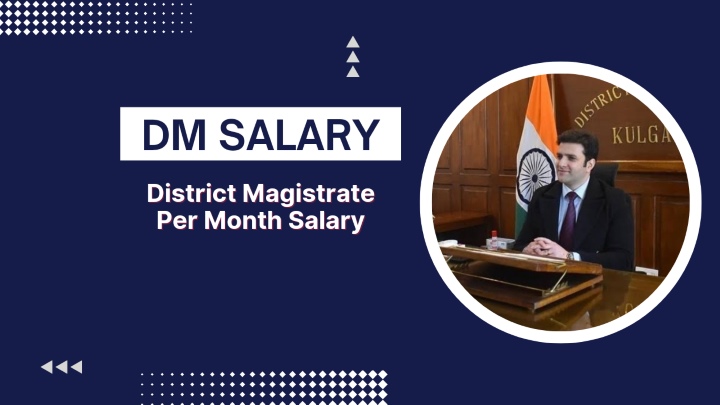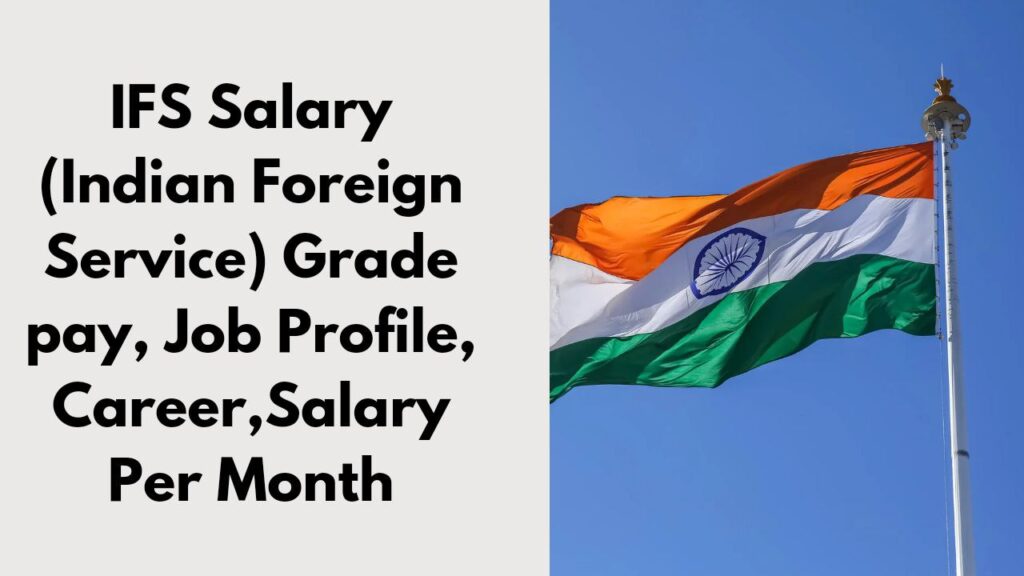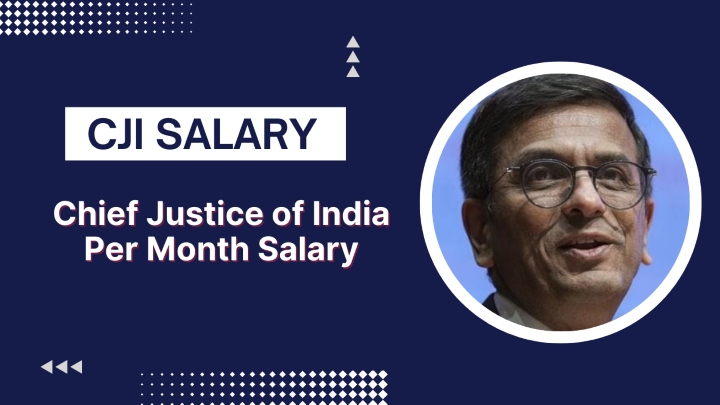
DM refers to District Magistrate and it is a very renowned post of IAS. In this article, we are going to discuss various details about the salary and the department of DM, their roles and responsibilities and how one can become a part of the department.
Table of Contents
DM Salary Per Month
The base salary of a DM varies from ₹1,18,500 to ₹2,09,200 per month. Apart from the salary, there are plenty of perks and benefits enjoyed by the post. The pay scale of a DM generally depends on several factors such as location, experience, talents and skills. According to the 7th Pay Commission, the basic salary of a DM generally ranges from around ₹1,18,500 to ₹2,09,200 per month. The pay scales are regulated by the Central Government.
DM Salary as per the 7th Pay Commission
As per the 7th Pay Commission, the basic salary of a DM ranges from ₹1,18,500 to ₹2,09,200 per month. However, several factors like location, experience, talents , seniority and skills also play an important role in determining the salary.
| DM Salary Structure as per the 7th Pay Commission | |
| Category | Salary of DIG |
| Pay Scale | ₹1,18,500 to ₹2,09,200 per month. |
| Basic Salary of DM | ₹1,18,500 |
| Dearness Allowance (DA) | ₹ 20,145 (17% of basic pay) |
| House Rent Allowance (HRA) | from ₹ 9480 to ₹ 28,440 based on location (8%-24% of basic pay) |
| Transport Allowance (TA) | ₹ 3200 to ₹ 7600 per month |
| In Hand DN Salary | ₹70,000 to ₹1,80,000 per month (approx) |
| Maximum Salary of DM (Without Any Promotion) | ₹2,09,200 per month. |
DM Salary as per the Old 6th Pay Commission
As per the 6th Pay Commission, the salary was comparatively lower than the 7th Pay Commission. The pay scale of a DM under the 6th Pay Commission typically ranged from ₹15,600 to ₹39,100 per month, with grade pay.
| DM Salary Structure as per the 6th Pay Commission | |
| Category | Salary of DIG |
| Pay Scale | ₹15,600 to ₹39,100 per month. |
| Grade Pay | ₹ 6600 |
| Basic Salary of DM | ₹15,600 |
| Dearness Allowance (DA) | ₹ 1560 (10% of basic pay) |
| House Rent Allowance (HRA) | from ₹ 1560 to ₹ 4680 based on location (10% to 30% of the basic pay) |
| Transport Allowance (TA) | ₹ 3200 per month |
| Maximum Salary of DM (Without Any Promotion) | ₹39,100 per month. |
District Magistrate is the most renowned post out of all the other posts of IAS. District Magistrates belong to IAS pay level 13 and their total years of service range from 13-16 years.
Who is a DM?
The district magistrate, also known as the district collector or deputy commissioner, is a civil servant who serves as the executive head of the administration of a district in India. The specific name depends on the state or union territory. People chosen for these posts have specific roles and responsibilities, which they are expected to perform all at once. The district magistrate is primarily responsible for maintaining law and order and heading the police and prosecuting agency, while the district collector focuses on revenue administration, and the deputy commissioner is in charge of overseeing developmental activities and coordinates government departments. Additionally, they also serve as election officers, registrar, marriage officer, licensing authority, and managing disaster responses, among other things. While the specific scope of duties may vary from state to state, they are generally similar. The district magistrate comes under the general supervision of divisional commissioner.
Job Role and Responsibility of a DM
Although the specific roles and responsibilities of a District Magistrate vary according to the nation and state, there are some general duties which they are expected to fulfill. Some of the common roles and duties of a DM is as follows :
- The District Magistrate is an executive magistrate and is the head of all magistrates (except additional district Magistrates)
- The District Magistrate has the duty of maintaining and upholding peace the order within the district
- The DM takes necessary actions under the preventive section of the criminal procedure code. This is because factors like public safety and protection of the citizens and their rights within the district are significant matters of concern which the district Magistrate has to deal with.
- The District Magistrate controls the department of police within the district that is under his supervision and oversees the activities of subordinate executive magistrates.
- Although the District Magistrate is an executive official and is not an official of the Judicial branch, in certain cases and situations the DM may hear and decide on the criminal cases, if granted by the State Government. Thus he might also be expected to control and regulate the administration is criminal and civil justice.
- The other Magistrates under the District Magistrate are to report to the DM
- The annual criminal report is submitted by the District Magistrate to the government.
Eligibility Criteria to Become a DM
Candidates who aspire to become a District Magistrate should carefully review and go through the eligibility criteria for the same. The most important factor that makes a candidate eligible for the post is their nationality. Besides nationality, educational qualification definitely plays a huge role in deciding the eligibility of a candidate
Nationality
- The candidate must be a citizen of India. They might also be citizens of Nepal and Bhutan, or a Tibetan refugee who came to India with the intent to settle permanently in the country.
- The candidate is a Pakistani, Burmese, Sri Lankan, or East African migrant with Indian origins who came to India with the intent to settle permanently in the country.
Educational qualification
- Candidates who will appear for the UPSC Civil Service Exam must satisfy either of the following educational qualifications mentioned below:
- The candidate must have a valid Bachelor’s degree from a recognized university OR
- The candidate must have completed or is appearing for the final semester exams of the course they are enrolled in (valid proof must be provided for verifying the seat for the exam) OR
- Candidates must have completed a bachelor’s degree in the field of technology that is recognized by the Government of India OR
- Candidates must have cleared the exam for the final semester of the MBBS course.
Thus, the basic eligibility criteria as per as educational qualifications are considered includes appearing for the UPSC and clearing it.
Read More:
DIG Salary
IFS Officer Salary



